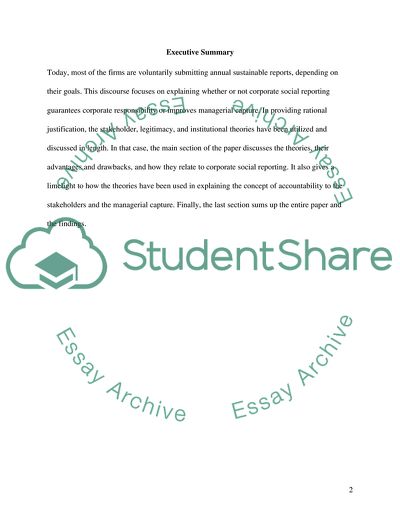Cite this document
(Corporate Covernance and. Accountability Essay Example | Topics and Well Written Essays - 2250 words, n.d.)
Corporate Covernance and. Accountability Essay Example | Topics and Well Written Essays - 2250 words. https://studentshare.org/finance-accounting/1855511-corporate-covernance-and-accountability
Corporate Covernance and. Accountability Essay Example | Topics and Well Written Essays - 2250 words. https://studentshare.org/finance-accounting/1855511-corporate-covernance-and-accountability
(Corporate Covernance And. Accountability Essay Example | Topics and Well Written Essays - 2250 Words)
Corporate Covernance And. Accountability Essay Example | Topics and Well Written Essays - 2250 Words. https://studentshare.org/finance-accounting/1855511-corporate-covernance-and-accountability.
Corporate Covernance And. Accountability Essay Example | Topics and Well Written Essays - 2250 Words. https://studentshare.org/finance-accounting/1855511-corporate-covernance-and-accountability.
“Corporate Covernance And. Accountability Essay Example | Topics and Well Written Essays - 2250 Words”. https://studentshare.org/finance-accounting/1855511-corporate-covernance-and-accountability.


